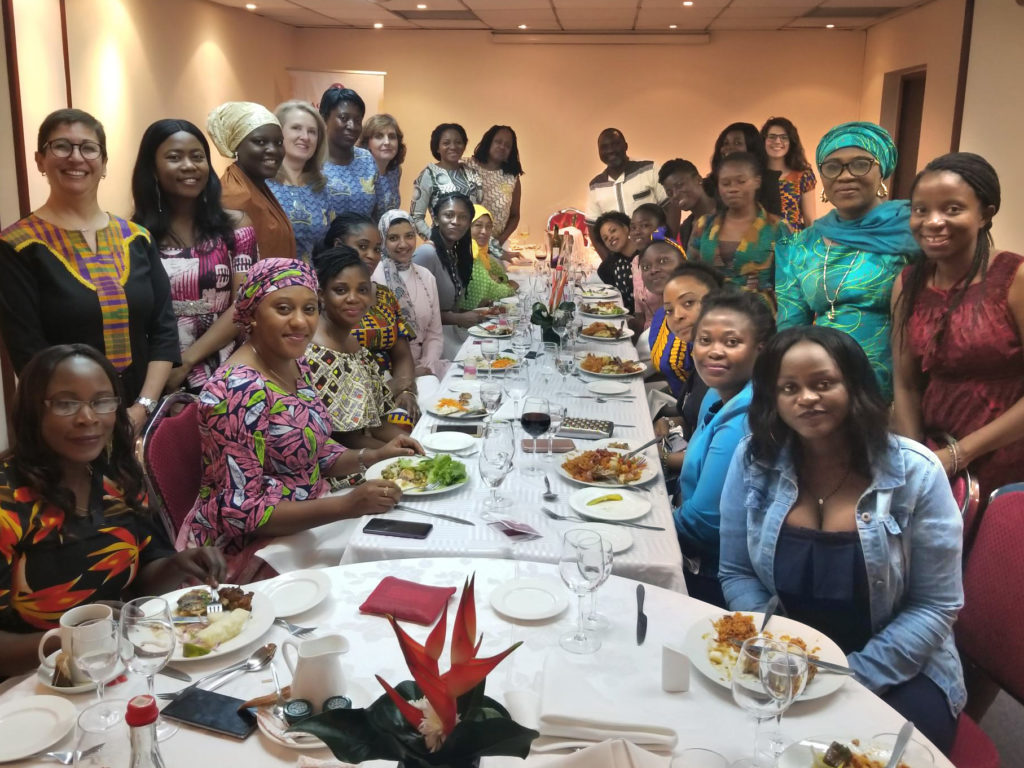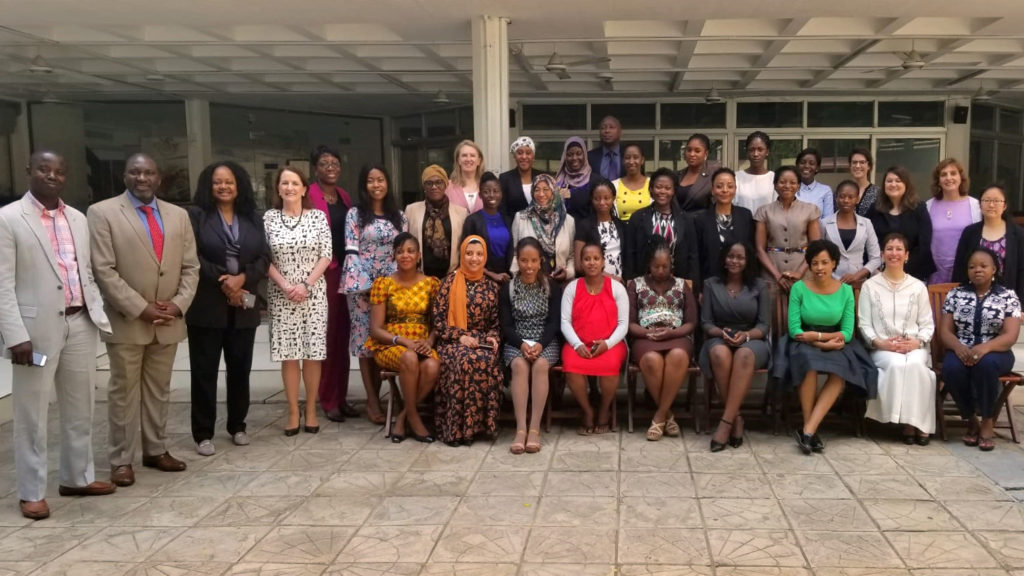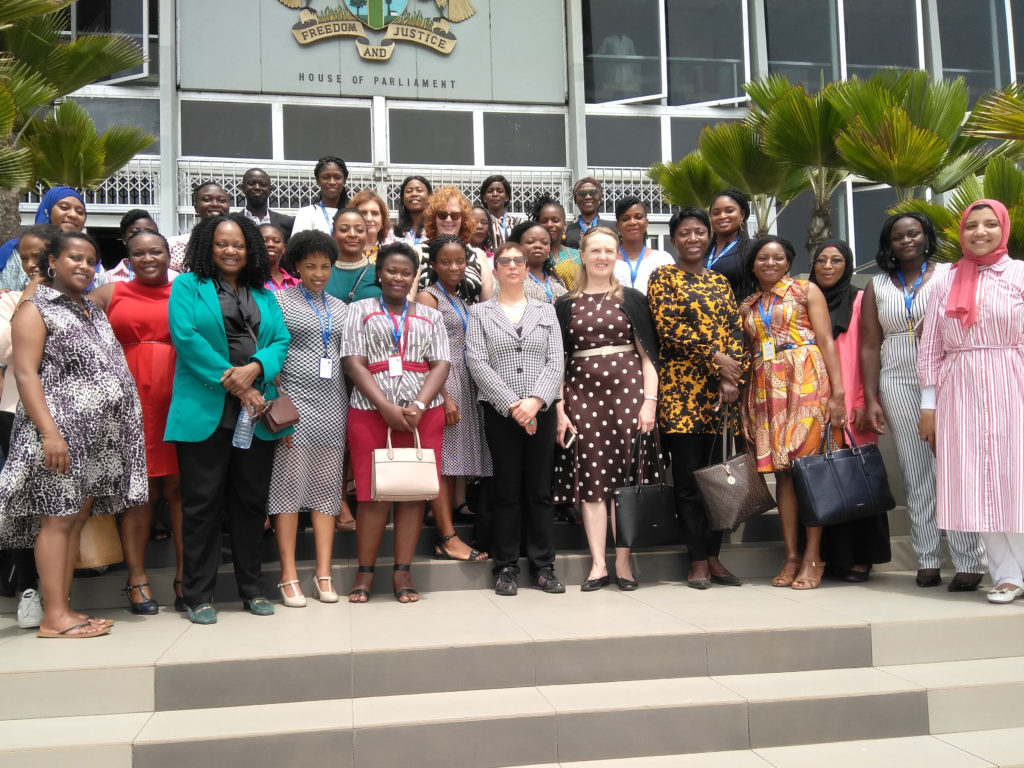February 20, 2019
Partnering with the African Center for Science and International Security (AFRICSIS), the James Martin Center for Nonproliferation Studies (CNS) offered as a new initiative an Intensive Course on Nuclear Nonproliferation and Security for Women in STEM in Accra, Ghana, from February 11–15, 2019.
The intensive course presented female technical experts in the nuclear field with first-hand opportunities to gain in-depth understanding of critical issues in the fields of nonproliferation, arms control, disarmament, peaceful uses of nuclear energy, and nuclear security. The course also facilitated discussion on how women could advance their insights and increase their participation in decision making across all areas of the nuclear field.
The course participants reflected the wide and rich diversity among nations on the African continent. More than 30 women with a wide variety of technical backgrounds, representing 16 African countries, actively engaged throughout the course. Participants included: university lecturers in physics and other sciences, nuclear regulatory authority officials, national radiation protection experts, doctors in radiology and oncology departments, and state atomic energy agency officials. Despite their wide range of backgrounds and cultural differences, the course participants were united in their high level of enthusiasm and engagement throughout the week.
The course opened with a welcome dinner on February 10 that included a keynote address by Ambassador Bonnie Jenkins, founder of Women of Color Advancing Peace and Security, as well as remarks by CNS Deputy Director Elena Sokova and AFRICSIS Director Hubert Foy. Fittingly, the course officially began on the UN International Day of Women and Girls in Science (February 11) with an inspiring video address by United Nations Under-Secretary-General and High Representative for Disarmament Affairs Izumi Nakamitsu.
Course events included lectures and panel discussions on topics like the history and current challenges to the international nuclear nonproliferation regime, nuclear-weapons-free zones, International Atomic Energy Agency (IAEA) safeguards, nuclear security, highly enriched uranium (HEU) minimization efforts in Africa, and peaceful uses of nuclear energy, among others. Notable presentations included Biological and Chemical Weapons Proliferation and Disarmament Issues by Ambassador Bonnie Jenkins; Nuclear Testing, the Comprehensive Nuclear-Test-Ban Treaty Organization (CTBTO), and its Verification Regime by Dr. Tammy Taylor, Director of the International Data Centre Division at the CTBTO; and one on UN disarmament machinery by Honorine Bonkoungou, first counselor at the Permanent Mission of Burkina Faso to the United Nations and former CNS fellow, and Anselme Yabouri, the director of the UN Regional Centre for Peace and Disarmament in Africa (UNREC). A number of CNS and VCDNP experts also gave lectures including CNS Deputy Director Elena Sokova; Vienna Center for Disarmament and Non-Proliferation Executive Director Laura Rockwood; Senior Program Manager for Education and Training Jean du Preez; Senior Program Manager for Nonproliferation Education Margarita Kalinina-Pohl; and Research Associate Anne Pellegrino.
The banner event of the week was a roundtable discussion on the opportunities and challenges for women in the nuclear field. Participants benefited from the experiences shared by notable women in the field including Ambassador Bonnie Jenkins, Dr. Oum Keltoum Hakam, and Honorine Bonkoungou, as well as gender champions like Dr. Kwaku Aning, head of the Ghana Atomic Energy Commission and former deputy director-general and head of the Department of Technical Cooperation at the IAEA. During the discussion, participants were inspired to share challenges they had faced as well as their career triumphs.
The intensive course also included a field visit to the Ghana Atomic Energy Commission where participants were able to see Ghana’s Miniature Neutron Source Reactor (MNSR), which was recently converted from weapon-usable HEU fuel to low-enriched uranium fuel.

Closing Dinner with Course Participants
The inaugural Intensive Course on Nuclear Nonproliferation and Security for Women in STEM was a resounding success—one participant said that the course “redirected my understanding of the Nonproliferation Treaty.” Another remarked that hearing from other women in the field “encouraged me and [showed] a path of knowledge transfers in my home country.” Others called the course an “eye opener” and “one of [the] best events I have attended.”
The course would not have been possible without the support of the Carnegie Corporation of New York and The John D. and Catherine T. MacArthur Foundation. The facilitators are grateful for their continued support of nonproliferation and disarmament education initiatives.


